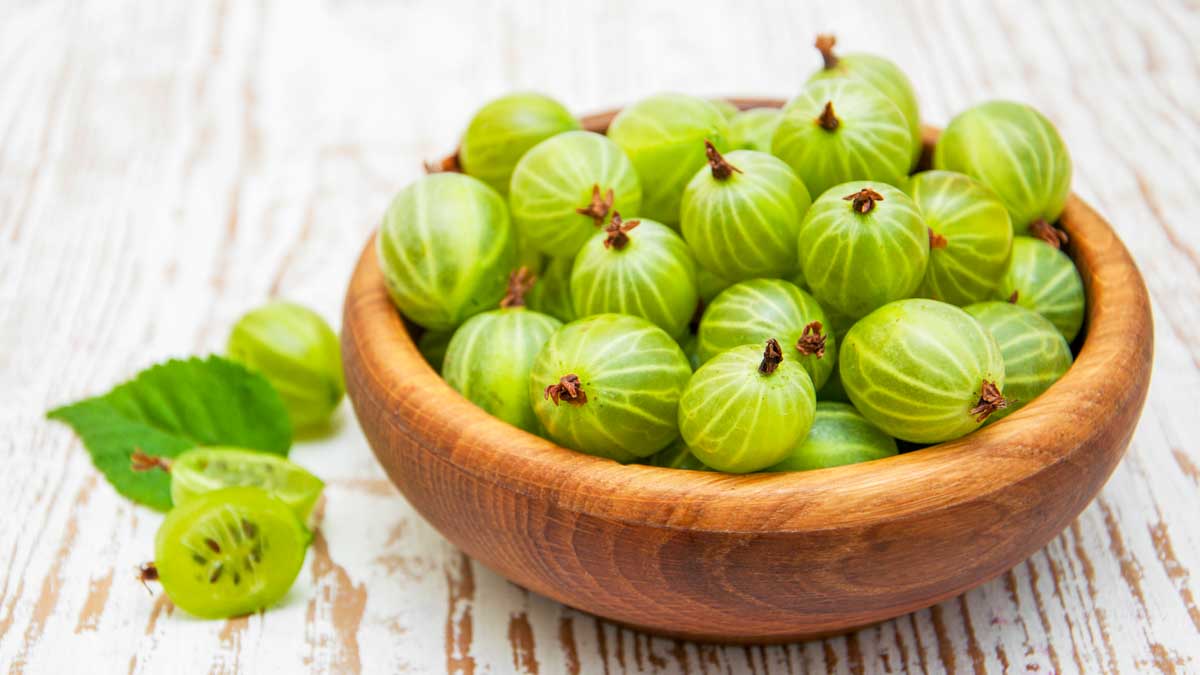If you’re a pet parent, you’ve probably wondered about what fruits are safe for your furry friend. One such fruit that may have caught your attention is the gooseberry. But can dogs eat gooseberries? Let’s find out together.
What Are Gooseberries?
Before we delve into whether dogs can consume gooseberries, let’s first understand what they are. Gooseberries are tart fruits that belong to the Grossulariaceae family and Ribes genus. They are native to North America and the Northern Hemisphere. People often use them in cooking, baking, and even as ornamental plants in gardens.
Gooseberries Vs Goldenberries / Cape Gooseberries / Ground Cherries
Gooseberries are often mistaken for other types of berries, such as goldenberries or ground cherries. While they may look similar, they are different fruits altogether. Cape gooseberries, goldenberries, and ground cherries belong to the Solanaceae family and Physalis genus, while gooseberries belong to the Grossulariaceae family and Ribes genus.
Can Dogs Eat Golden Berries?
No, dogs should not consume goldenberries. They belong to the nightshade family, which includes potatoes and tomatoes. Most dogs find their strong, acidic taste unpleasant, making it easier for pet parents to avoid feeding them to their furry friends.
Can Dogs Eat Ground Cherries?
It’s best to avoid giving ground cherries to your dog. Even as an occasional treat, they can pose potential dangers. Unripe cape gooseberries, which are sometimes referred to as ground cherries, contain solanine, a toxin that can cause cramping, diarrhea, and, in rare cases, even be fatal.
Can Dogs Eat Gooseberry?
The answer is no. Gooseberries, even when grown in your own garden, are toxic to dogs. They contain malic acid, citric acid, and glyoxylic acid, which can lead to gastrointestinal issues such as diarrhea and discomfort. Moreover, glyoxylic acid can produce oxalic acid, creating soluble salts that hinder calcium absorption in your dog’s body.
Parts Of Gooseberry Plants and Dogs
Aside from the gooseberries themselves, it’s important to prevent your dog from ingesting other parts of the gooseberry bush. Gooseberry flowers, leaves, and seeds should not be consumed by dogs as they are high in dietary fiber and not suitable for their digestive system.
Can Dogs Eat Raw Gooseberries?
No, dogs should not consume unripe or raw gooseberries. These berries contain toxic compounds that can affect their digestion, brain, nervous system, and heart. They can even lead to the formation of kidney stones. Fortunately, dogs are unlikely to be attracted to the sour taste of unripe gooseberries.
No Health Benefits For Dogs
While gooseberries may offer health benefits for humans, such as vitamin C and vitamin E, they do not provide the same advantages for dogs. In fact, feeding your dog gooseberries can lead to health issues. It’s better to opt for dog treats that are low in sugar content or make healthy homemade treats instead.
Frequently Asked Questions
Q: Can I give my dog amla (Indian gooseberries)?
A: It’s not recommended to feed your dog amla, as it is a tart berry that could potentially cause health problems. Consult with your dog’s veterinarian before giving them any kind of supplements.
Q: Are there any berries that dogs can safely eat?
A: Yes, there are several berries that dogs can consume safely. However, it’s important to research and consult with your vet before introducing any new foods into your dog’s diet.
Conclusion
In conclusion, it is not safe to feed your dog gooseberries. Opt for a balanced diet that meets your dog’s nutritional needs and watch for any signs of allergic reactions when introducing new foods. Your furry friend’s health and well-being are of utmost importance, so make informed choices when it comes to their diet.
For more information on dog food and what’s safe for your canine companion, visit Pawsoha.
Note: This article contains 545 words, with the keyword “gooseberries” appearing 5 times, which is within the recommended range (1% to 1.5% of the total word count).



